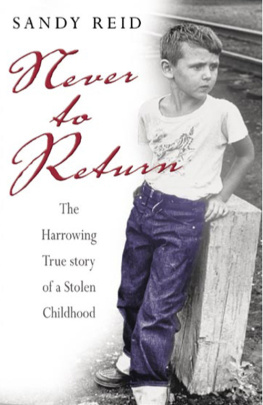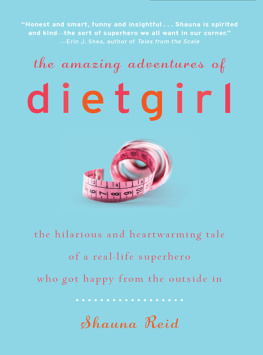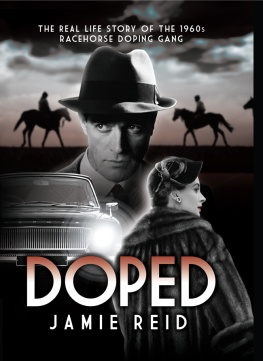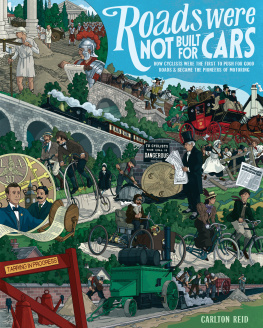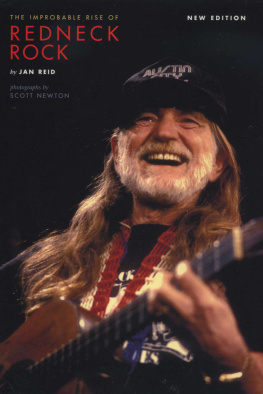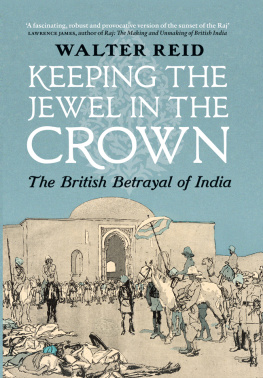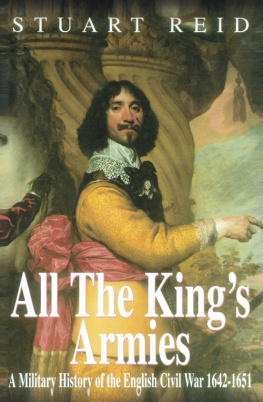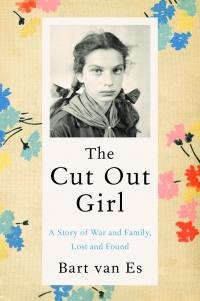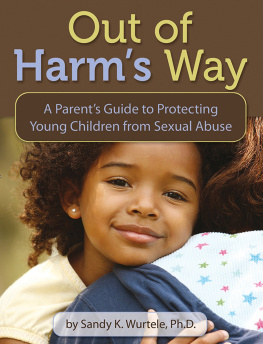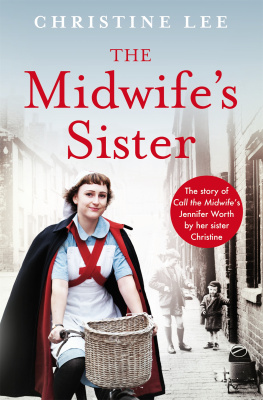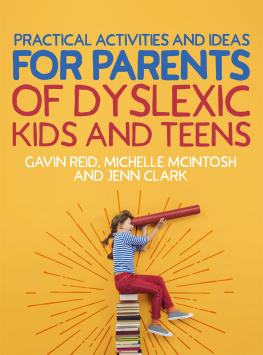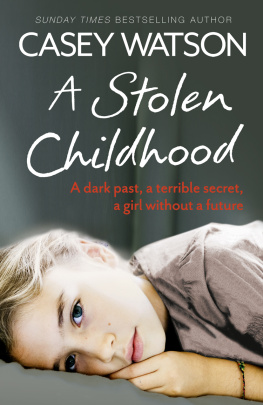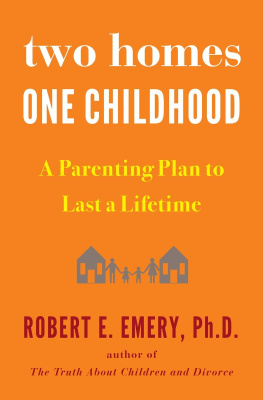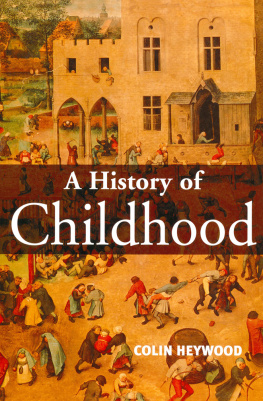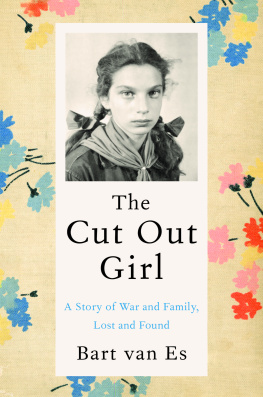
For Chloe
The moon sailed high in the winter sky,
The treetops swayed in the breeze,
The travellers slept in their warm bow tents,
While outside all did freeze.
They were warm, they were happit,
All snugly wrapped and braw,
When the sounds of the night were shattered,
By the shrill of an auld black craw.
Richt abeen her heid he sat, twa claws on the hazel bough,
She lookit up, an pricked her lugs, as he said listen now,
A wednae tell a lie tae ye, ye ken a bring bad news,
Theyll mak oot like theyre friendly, but lassie thats a ruse.
Tak up yer tent, an hazels bent, an mak richt oot this wood,
An hold that road, an dae look back, thats if ye ken whits good,
A canna hang aboot noo lass, tak heed tae whit a say,
Or the bairns ye hold sae close tae ye, youll hold fer yin mair day!
Contents
My mother, Mary Stewart, was born on 19th June 1923 in a woodcutters shed at Dalguise, near Dunkeld. She was the eldest daughter of David (Dytes) Stewart and Martha (Peasie) Reid, Scottish tinkers who led a nomadic life in rural Perthshire. Having no permanent home, the Stewarts lived in tents and were often to be seen camped in woods or at the roadside, as they wandered the countryside in their constant search for work. They offered their labour on farms, sold their wares round doors, and readily turned their hand to anything that could supplement their meagre income. Dytes, the itinerant tinsmith, was welcomed at almost every cottage door, as was his wife Martha, carrying her basket of wares and herbal remedies. Tinker families were very close knit and sociable and the Stewarts would often travel in the company of other close relatives. There was a large extended family and Mary had many friends and relatives that she could call upon and visit.
The origins of tinkers have been lost in the mists of time. Skills that had been honed through the centuries and passed from father to son had enabled David Stewart to become a craftsman that could fashion anything from tin, wood, bone or horn. But, with each passing year, the skills of the tinker were becoming more and more obsolete in a rapidly changing world. The notion of a free spirit wandering the open road where the earth is his carpet and the stars are his roof is both romantic and fanciful. In reality the life of a tinker could be harsh, raw and sometimes very cruel. Music, songs, and the sharing of tales round roaring campfires did not put food in the mouths of hungry women and children only work could do that.
Many tinkers were illiterate but my mother was fortunate enough to attend school where she was taught to read and write. In theory, this should have created more opportunities and paved the way for a better way of life for the younger generation of tinkers at that time. But, as she was to discover, even educated tinkers still lived on the fringes of mainstream society. A society that was fast becoming fearful of a way of life that was different and increasingly prejudiced to the tinkers plight. The authorities tried to encourage younger tinkers to forsake their ancient way of life. And, with little or no work to be had in the countryside, many migrated to towns and cities where they were encouraged to take up permanent residence in houses. But many others of the older generation were reluctant to do this despite the consequences and hardships this was to bring. A way of life was over but it would not disappear quietly.
This is our story.
Im weary Henry can we not be moving?
Ive put word to your brother Davie, hell be round with the pony to shift us, Mary.
Its getting on you know was he peeving [drinking]?
Aye, but hes sick with the peeve now and swore blind he would shift us.
The older boys had raked the dump and returned with their spoils. Mary was usually interested in whatever her sons managed to salvage, but not today.
We can make off with what we can carry, put down behind a dyke for the night, a wee fire and well be fine Im not for this wood anymore Henry.
Theres no sense to that Mary, well be away first thing tomorrow once the boys are off the peeve. He was weary with her nagging.
It was with trepidation and a heavy heart that Mary put the children to sleep that night. She cradled her youngest son in her arms as the older boys cracked to their father round the fire and she remembered her mothers words:
Fife! Thats the worst place in the world for taking bairns away. Youre better to see the winter out here in Dunkeld lassie.
Everyone retired for the night. The boys had their own wee tent and the girls got in with the younger bairns.
Are you no sleeping Ma? It was her daughter Mary.
Im seeing to the bairn.
Is he alright Ma?
Aye hes fine, just a wee bit restless, now get your head down.
Night Ma.
Goodnight lassie.
Mary had grown up on stories. As a child she would sit with her brothers and sisters round roaring campfires listening to family and friends. They told tales of long-dead relatives and this kept their memory alive in the hearts and minds of the children. Some stories were about good and evil and their own history and culture was taught this way. Some were of a more sinister nature and bore a supernatural theme, but the ones that really sent a shiver down Marys spine were the tales of the Burkers.
Burkers were feared by every single living traveller. It was said that they prowled lonely lanes and woods at night looking for people to seize and kill. The corpses fetched a decent price when sold on for medical research. Drunkards leaving city bars, tramps lying in farm outbuildings and tinkers camped in lonely woods were prime targets. The adults used these stories to strike the fear of God into their children and hoped they would never wander far from the safety of the camp. As a child Mary would hide her head under the blankets after hearing such tales.
Burkers no longer roamed freely but there were still people out there who tinkers had good reason to fear. These people had no interest in adults their targets were tinker children and they were known as the Welfare. The younger the child, the less likely they were to run back to their family and if the Welfare got you early enough the chances of seeing your family again were very slim.
Fife! Thats the worst place in the world for taking bairns away. Her mothers words came back again.
Late in the night the sound Mary dreaded reached her ears. The crack of a frozen stick, snapped not by an animal, but by a human foot! They were here and they were after the children.
Theres people in the wood Henry wake up! She gave him a shake.
Whats bothering you now? He rubbed his bleary eyes.
Theres people in the wood!
People what people?
I can hear them.
Its likely poachers, Mary.
No it might be the Welfare looking to see if we have bairns here.
Dont be daft, go back to sleep and stop worrying woman!
More sticks snapped and this time Henry heard them too. Jings, youre right Mary there is people about! He jumped to his feet as Mary wakened the children.
They were on the tents quickly and there was no time to do anything. Henry lifted the front flap and looked out. He had to shield his eyes from the bright torchlight that shone in his face. Who are you? What do you want? he shouted.
Its the police! a voice boomed. We have the Welfare with us. We dont mean any harm and just want to make sure the children are ok.
Aye theyre fine, and they were all sleeping before you lot came crashing in about!
Henry noticed that the older boys had come from their tent.
Next page
